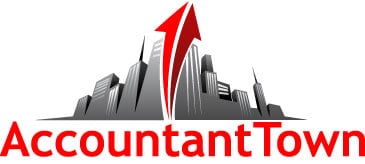Accounting Principles – Business Organization to Drive Income
Business organization consists in supplying the wants of the masses for profit. Profit implies that the object is sales. Sales denote the transfer of ownership at an increased price over cost.
This eliminates the sale of individual services at personal cost. The professional man, or workman has a personal cost which is made up of the living expenses of himself and family. This is to be distinguished from business cost or expenses. Organization specifically implies the engaging in business for profit. From an economic view-point organization may be divided into the following types:
1. The individual,
2. The associated individuals,
3. The employer.
Since all forms of organization may be looked upon as the magnified individual, his functions will serve best as a basis for elaboration.
The individual who organizes for business purposes has the following functions to perform:
He must
a. Find a place to work,
b. See that he has proper tools,
c. Secure material,
d. Apply his labor,
e. Have a place to offer his goods for sale,
f. Take care of his finances,
g. Watch his relations to the government, federal, state,
county, and city.
h. Watch his legal relations to other individuals with
whom he does business, t. Keep his accounts.
Scrutiny of the above functions as to their relation to accounting will serve to bring out the fact that all are vitally connected therewith. All involve finance. As soon as finance enters into a business, as it must without exception, then accounting becomes necessary. Securing a place to work means either acquiring property or renting some place. Immediately finance enters the proposition and accounting necessarily follows. The acquisition of property means the investment of capital of which financial record must be kept. Renting a place, means keeping an account with the landlord. The investment in property establishes a relation with some department of the government and taxes enter the proposition. Entering into an agreement with the landlord brings out certain legal relations which may give rise to legal expenses. Thus it will be seen in running through a list of functions that each is intimately connected with accounting.
Here is found the simplest type of organization. Each function is performed by the individual who has no help of any kind. A good example is the shoemaker. Such an individual, having found a place to work and equipped himself with tools, secures his leather, and other miscellaneous materials and supplies, applies his own labor and upon completion, offers his product. His profit consists in the difference between what he sells the shoes for and what they have cost him to make.
The capacity of the individual is limited. Prosperity may find his progress hampered, because of the fact that when he is engaged in buying leather and supplies, or when he is selling to customers, he cannot continue to work upon his product. He may be unable to keep his stock up and dissatisfaction on the part of the customers and subsequent loss of trade may result. Thus the thought of association may be suggested to him. A sharing of functions with some associate may seem desirable. If he has some one to continue at work on the shoes while he is devoting himself to obtaining selected leathers for the shoes the quality will undoubtedly be improved or at least he will be able to maintain the standard of quality which he has set. If he is free from annoyance and the feeling that he is neglecting his work while waiting on customers he will be in a position to give better attention to them and thus gain their good-will.
While the division of labor, or division of functions, will undoubtedly produce greater results, a division of responsibility, each individual being equally interested, tends to demoralize. Accordingly, individual ambition tends towards a desire to control or employ, and thus it is that the employer or entrepreneur becomes the most popular form of economic organization.
As an employer the organization may take the legal form of:
1. Sole proprietor.
2. Copartnership,
General,
Limited or special.
3. Joint venture,
4. Association or society.
5. Joint stock association.
6. Corporation,
Stock,
Non-stock.
7. Trust or holding company.
A discussion of the legal phases of these various forms will follow later. At the present a discussion of the economic phases of organization in so far as they relate to the employer seems advisable.
Access the contact form and send us your feedback, questions, etc. We are always welcome to help someone out. You can also contact us if you wish to submit your writing, cartoons, jokes, etc. and we will consider posting them to share with the world! The Facebook and LinkedIn groups are also good areas to find people interested in accounting like yourself, don’t hesitate to join as everyone of all levels are welcome to become part of the community.

